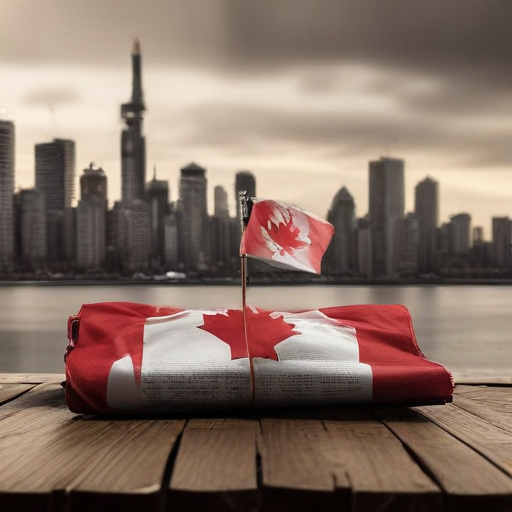Canadian Prime Minister Justin Trudeau is facing a significant political crisis following the resignation of Finance Minister Chrystia Freeland, a departure that has left the government under increased scrutiny and pressure. Once a beacon of hope and progressive values upon his 2015 election, Trudeau’s administration is now grappling with declining popularity and internal dissent.
Freeland’s resignation, which came just hours before she was set to deliver a crucial fiscal update, highlighted a rift between her and Trudeau regarding Canada’s response to potential tariff threats from U.S. President Donald Trump. This disagreement reflects the broader challenges the Liberal government faces as it navigates the precarious economic landscape engineered by the incoming U.S. administration’s aggressive trade policies.
Freeland, a key ally and viewed as a potential successor to Trudeau, publicly expressed her concerns about the government’s direction and called for a more strategic response to the U.S. tariffs rather than relying on short-term political “gimmicks.” Her resignation comes at a time when the support for Trudeau has dwindled significantly, with recent polls indicating that a larger percentage of Canadians favor Trump over Trudeau— a stark reversal from previous sentiments.
Political experts have noted that Trudeau’s leadership is increasingly under threat, with calls for his resignation echoing from within his caucus as well as from opposition leaders. Observers argue that this internal discontent and the loss of Freeland signal a loss of confidence in Trudeau’s ability to govern effectively, particularly with a federal election looming.
Despite Trudeau’s insistence on remaining in power, analysts suggest that his position is becoming increasingly untenable. Canada, typically regarded as a stable nation, now faces uncertainty as the prime minister wrestles with mounting pressure to step aside, potentially marking a significant shift in the country’s political landscape.
In summary, the Canadian political arena is at a critical juncture as Trudeau’s government contends with self-inflicted wounds and external pressures. Both Freeland’s exit and the growing chorus calling for Trudeau’s resignation evoke a sense of urgency for the leadership to recalibrate its strategies and regain public trust. While challenges loom ahead, there remains an opportunity for renewal and transformation, underscoring the resilience that Canada has historically demonstrated in times of political turbulence. This situation could prompt the Liberal party to reevaluate its priorities and emerge stronger, fostering a renewed commitment to addressing the pressing concerns of Canadians.
